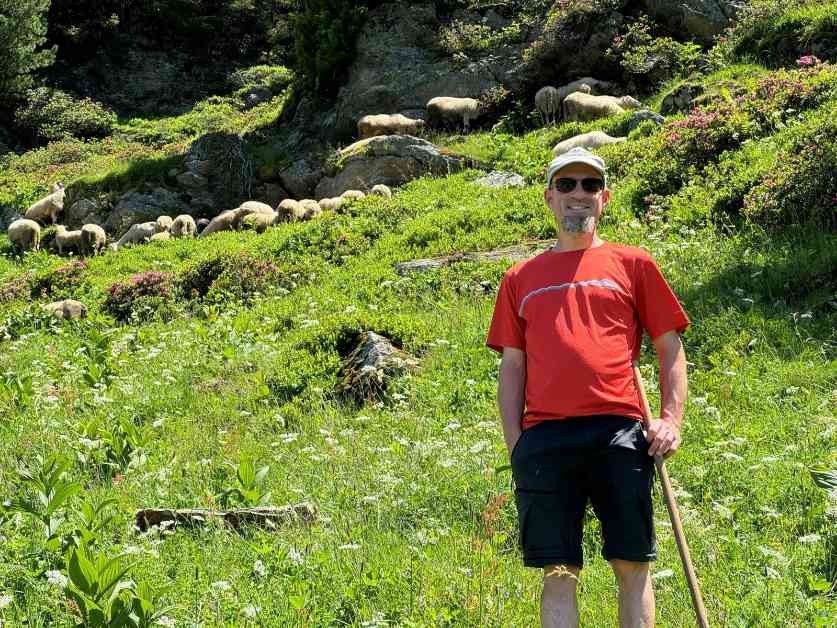For the past ten days, Carine and Thomas have not been alone at the Blaitière alpine pasture in Chamonix. Pauline last week, Amandine this week: volunteers from the WWF have come to help them monitor their herd of 80 sheep and two goats.
« We joined the WWF program ‘Entre chiens et loup’, » explains Thomas Gardiennet. It aims to help frontline farmers on the issue of wolves, with the goal, of course, of avoiding the need to kill wolves. » The WWF reminds us, according to ministerial figures, that 198 wolves were legally shot in France in 2023. At Blaitière, the animals are safe at night in a sheepfold. Fears about the predator are during the day, during the movements to the upper pasture or in the micro-reliefs of the pastures: « During transfers, when we pass through the undergrowth, when we can’t see the whole herd, » details Thomas Gardiennet. He stands in front to guide and the volunteers are behind as sweepers, « to make sure there are no straggling sheep and to deter any potential wolves in the area. »
« We have one volunteer per week »
A pair of gray wolves has been officially spotted in the area, with one or more pups. They move on this slope against the Mont-Blanc massif, at least from Les Houches to Argentière. To ensure cohabitation of wolves with pastoralism, the presence of volunteers helps to prevent attacks. So far, it’s been a success, no sheep or goats have been taken by the predator. « We have one volunteer per week, it changes every week, » explains Thomas Gardiennet. These are people who take time out of their spare time and vacations. It lasts until the end of August. In 2023, the WWF mobilized 72 people to guard two herds in Haute-Savoie, after they received four days of training. « They are independent. WWF provides them with a tent and a base camp. » They maintain their independence from the shepherd couple. « It takes us some time, because every week we have to explain our tasks again, but it’s a great help. »
Volunteering that can mean sleepless nights
According to their preference, volunteers can also participate in other tasks: milking, cheesemaking, or other tasks. « It depends on their wishes and their level of fatigue, » assures Thomas Gardiennet. It is true that at Blaitière, nights are peaceful, as the herd sleeps in a building. But elsewhere, volunteering means sleepless nights to watch over the open-air enclosures. In addition to helping with herd protection, volunteers can also learn about sustainable farming practices, wildlife conservation, and the importance of coexistence between humans and predators in the ecosystem. This hands-on experience can provide valuable insights into the challenges faced by farmers and conservationists in managing livestock and wildlife populations in mountainous regions. By volunteering with organizations like the WWF, individuals can make a direct impact on environmental conservation efforts and contribute to the protection of vulnerable species in their natural habitats.

